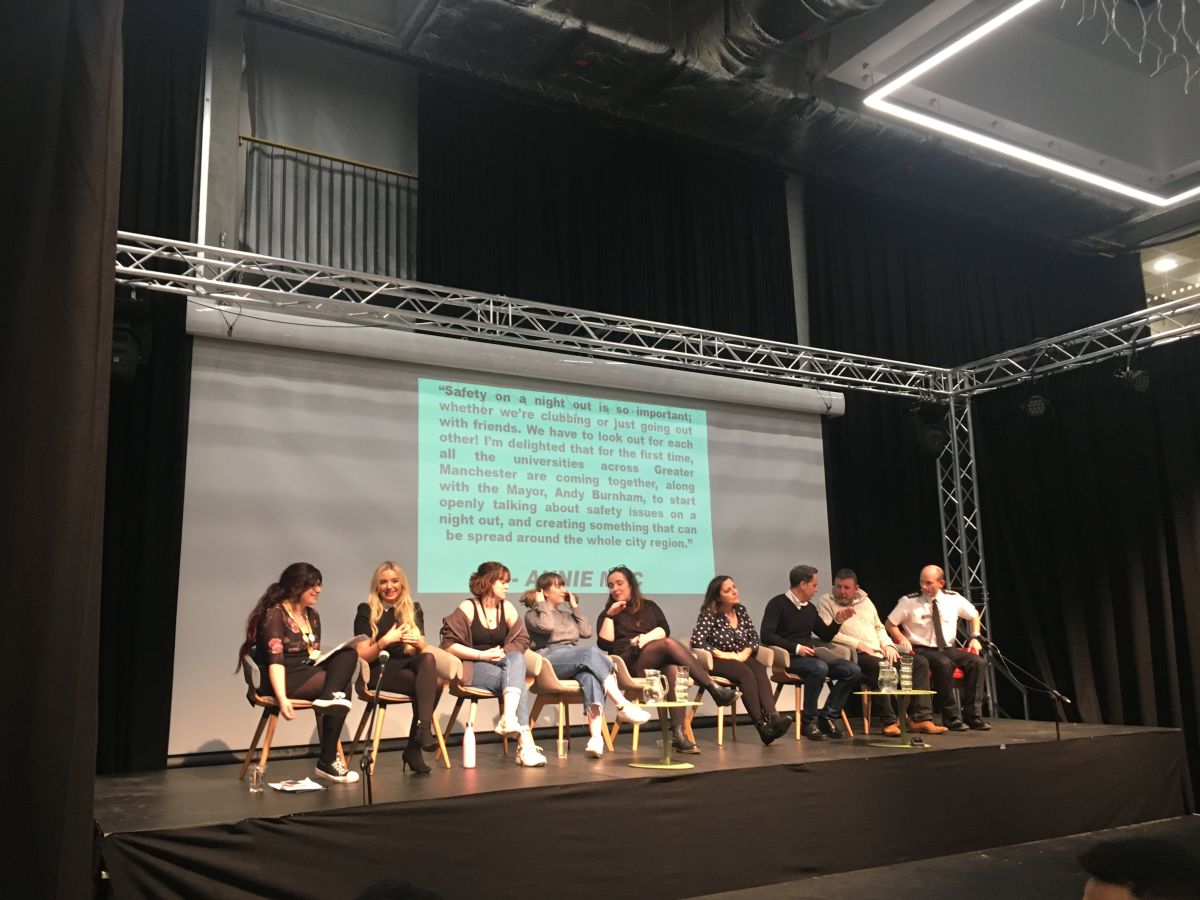“A call to arms to change”: Burnham joins student leaders in student safety talks

Representatives from across Greater Manchester universities came together as the Greater Manchester Student Assembly (GMSA) for the first time to meet with students and discuss student safety, alongside Mayor Andy Burnham and Manchester’s ‘night tzar’ Sacha Lord.
Burnham placed particular emphasis on discussing safety in student accommodation, calling the recent fire in Bolton a “scandal”, and saying it should be “a call to arms to change”. Other topics discussed included problems Manchester has seen with security and bouncers, drug culture, and sexual harassment.
Joining Burnham and Lord on the panel was Nick Pope, whose son Charlie was a University of Manchester student who drowned in a Manchester canal, Figen Murray, whose son Martyn Hett died in the Manchester Arena bombing in 2017, and Students’ Union officers from several Manchester universities, including University of Manchester SU’s Women’s Officer Ayla Huseyinoglu.
Drug safety was one of the main topics of the evening, with students flagging that they often did not feel safe to tell security, police or paramedics what they had taken for fear of negative repercussions. Students also voiced support for more drug education by universities in a call that was echoed by the SU Officers, with Huseyinoglu saying it was “something really important that SUs should be doing”.
Lord, who founded The Warehouse Project and Parklife, frequently circulates information about especially potent batches of drugs on his twitter, and said he would continue to do this despite facing criticism.
“If any venue or festival says drugs aren’t a problem for them, they’re lying. I don’t condone the use of drugs, I am not a supporter of front of house testing because I think that does condone the use of drugs, but I think it’s important to educate.”
Lord works in partnership with Manchester Drug Analysis and Knowledge Exchange (MANDRAKE) to test drugs confiscated at Warehouse Project. On the night, MANDRAKE warned against the use of drug testing kits, saying that they were “very cheap and unsafe systems”.
Burnham told students that the focus was always on who was distributing drugs, rather than the individuals taking it, but voiced concern that encouraging students to be open about their drug use with emergency services could look like the Council was condoning the use of illegal substances.
Transport and safety on the streets at night also received a lot of attention, with Burnham speaking of his ambitions to introduce a more integrated transport system that would see one ticket be valid across buses and Metrolink services within the next two years.
“The challenge we’ve got is funding. Nighttime transport requires a big subsidy from the central government that London gets and we don’t.”
Burnham also said the Council had used council tax to recruit more police officers, who are increasingly present on public transport, and are making more use of stop and search powers, which is having a positive effect in tackling knife crime in the city.
Concerns over the behaviour of security services and bouncers in the city were met with agreement by Lord, who acknowledged that the problem only applied to a minority of security staff, but admitted that he personally thought security aren’t regulated well enough.
Panel members, including Murray and Huseyinoglu, called for universities to take more responsibility for student safety in residential areas, which do not see as much police or university security presence as university campuses and the city centre.
“Be extremely demanding of your universities,” Murray told students. “You pay a lot of student fees and it shouldn’t just be about tuition. The universities have an obligation to keep you guys safe.”
Huseyinoglu said one of her priorities for Reclaim the Night this year was to focus on female safety in residential areas, saying that she felt there were different issues that needed to be addressed in the city centre and in Fallowfield, Rusholme, and Withington.
Sylvie Pope, founder of the Misogyny is Hate campaign, also called for more to be done to address the culture of misogyny, including catcalling and sexual harassment and assault on nights out.
Safety of other marginalised groups, such as LGBT+ students was also raised, with Lord telling students: “We want to be a 24-hour party city and we can’t be unless everyone is included.”







